It doesn’t matter if it was Alejandro Valverde in 2022, Annemiek van Vleuten and Peter Sagan in 2023 or now Mark Cavendish in 2024: whenever a retiring rider has had a significant impact on an era of the sport – or in Cavendish’s case, perhaps an even greater timespan – the resulting media attention can threaten to eclipse the news that other top names are also handing up their wheels.
The end of 2024 is no different. For the 2025 season, it’s worth remembering that apart from the massive loss of Cavendish, we’ll also be missing retirees of the calibre of Olympic and World Champion Grace Brown, with the charisma of Colombian ‘rock star’ racer Rigoberto Urán, the breakaway genius of Thomas De Gendt or the behind-the-scenes dedication of a top team worker like Christine Majerus. And that is to name but a few.
In the sprints, meanwhile, if Mark Cavendish was clearly in a class of his own, then Denmark’s Michael Mørkøv was often described as the world’s greatest lead-out man – and he will no longer be in the peloton, either, in 2025.
Here then, in alphabetical order, is a review of some of the top names across the sport bowing out at the end of 2024 – and why they matter so much.
Rider with a brilliant early career who later became a hugely valued team worker and teammate
- Top victories: Tour de France, 3 stages; Giro d’Italia, 1 stage; GP Ouest-France; Gent-Wevelgem; Vattenfall Classic; Critérium du Dauphiné, 5 stages; Eneco Tour, 2 overall wins and 5 stages; Tirreno-Adriatico, 2 stages
- Career win tally: 81
When Norway’s Edvald Boasson Hägen claimed his third and last Tour de France stage win from a breakaway in 2017, the Norwegian was described by the Guardian newspaper as “remaining one of the great unfulfilled talents of cycling.” But if there can be no doubt that the career of the quietly spoken ‘Eddy the Boss’, as he was once nicknamed, faded notably results-wise in its second half, a final tally of 81 victories speaks volumes for just how successful Boasson Hagen was in his youth – and how talented he remained.
Ranked third in the UCI world rankings in late August 2009 when he was just 22, Boasson Hagen initially seemed fated to shake cycling’s hierarchies to its core. In his second last year as an amateur, his devastating late accelerations and racecraft allowed him to claim three small group sprint stage wins in the 2006 Tour de l’Avenir. Then in 2007, a series of 12 wins through the season, in all manner of terrain barring the high mountains – arguably his biggest Achilles’ heel throughout his career – hinted at an even greater ability to triumph across the board.
The latest race content, interviews, features, reviews and expert buying guides, direct to your inbox!
And so it proved, almost as soon as he turned pro next January. A key component of the staggering winning machine that was Team Colombia and HTC in 2008 and 2009, and where sprinters like Mark Cavendish and Andre Greipel were also flourishing, Boasson Hagen cracked out victories ranging from sprints in the Tour of Britain to the Gent-Wevelgem and stages in the Giro d’Italia. Barely in his twenties, it seemed that he was already going places – and fast.
Snapped up by Sky in 2010, Boasson Hagen saved their Tour de France in 2011 as leader Bradley Wiggins crashed out, with not one but two transition stage wins. But that success was later overshadowed by the rise of Wiggins and Chris Froome in the 2011 Vuelta a España, and then in 2012 as the team increasingly focussed on Grand Tour classifications, Boasson Hagen’s no less significant contributions to the team’s brilliant campaign were increasingly eclipsed.
Boasson Hagen’s move to Qhubeka in 2015, the team where he spent the longest period of his career, helped maintain his leader’s status, with nine wins in 2016, the most notable a stage in the Critérium du Dauphiné, showing that early consistency had yet to die out. But the dreams of a big win in the Classics were gradually fading and by the time he reached TotalEnergies in 2021, he’d mostly moved into the role of a highly appreciated team worker. Yet for older, Boasson Hagen’s pure winning class in his heyday at Sky, Qhubeka and HTC would linger long in the memory.
Australia’s top women’s racer with both Olympic and World Championships titles
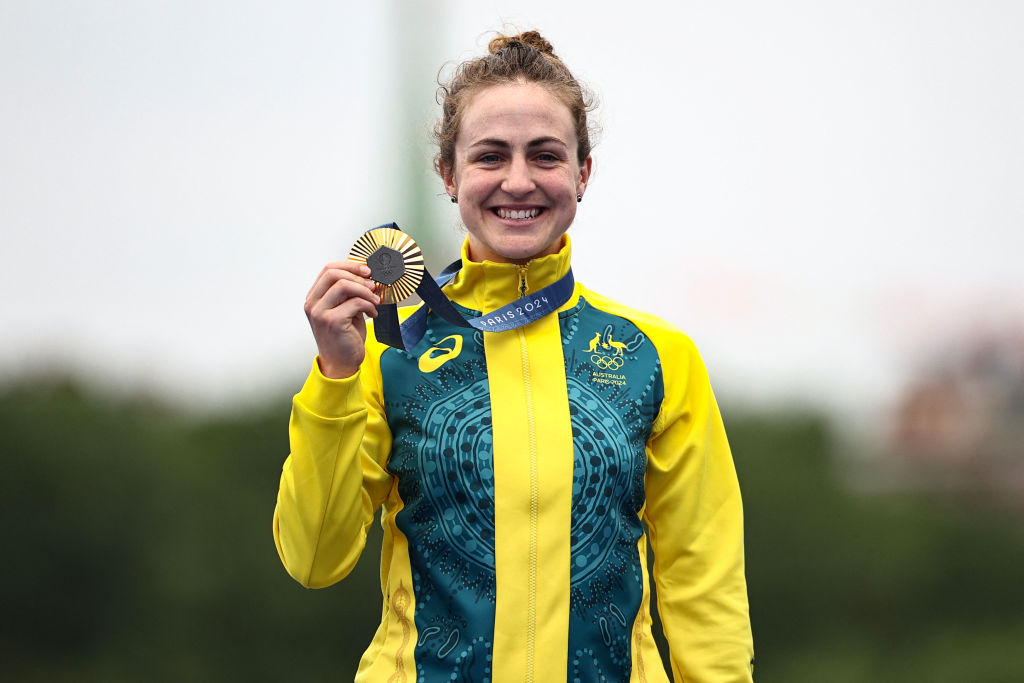
- Top victories: Olympic Games time trial; World Championships time trial; Liège-Bastogne-Liège; Tour Down Under; Classic Brugge-De Panne; Brabantse Pijl
- Career win tally: 26
It was a short career, but a truly remarkable one. Australia’s top female road cyclist Grace Brown may have started professional racing in 2018 and ended it this September aged 32. But in just seven years as a pro, Brown forged a palmarès of remarkable depth, variety, and, above all, brilliance.
Capturing the Australian time trial title in 2019, the first of four, was more than a hefty indicator of the shape of things to come. Brown’s immense talent in the speciality saw her then claim gold medals in time trials at Commonwealth Games (2019), Olympic (2024) and World Championship level (2024). So in some ways, it was more than fitting that her final success was the Chrono des Herbiers time trial in France this October.
Yet to focus purely on Brown’s renowned ability against the clock would be far from doing her career justice. Her small group sprint win in the one Monument in her palmares, Liège-Bastogne-Liège in 2024, came at the end of an epic 70km battle across names as redolent of La Doyenne’s history as the Stockeu, the Côte de la Redoute and the Cote de la Roche-aux-Faucons.
Late on in the race Brown regained contact with an elite group also containing Elisa Longo Borghini (Lidl-Trek), Demi Vollering (SD Worx-Protime) and Kasia Niewiadoma (Canyon-Sram), and despite nearly crashing on a roundabout, subsequently managed to outsprint them all for victory.
Other top one-day wins included Brabantse Pijl (2020) and the Classic Brugge-De Panne (2021). But if her French team FDJ-Suez were likely particularly delighted to see her claiming as important a local victory as the Bretagne Ladies Tour in both 2023 and 2024, personally speaking Brown would surely have a soft spot for her standout home soil triumph in Australia’s top stage race, the Tour Down Under in 2022.
“I know that I could have many more years in cycling but I really miss my life in Australia with my husband, my family and my friends and it is something that is harder and harder to leave,” said Brown in the Instagram post in July that announced her retirement at the end of the season.
Come what may, though, as newly nominated president of The Cyclists Alliance rider’s association, she will certainly remain fully in touch with the sport.
The sprinter who defined an era of the sport
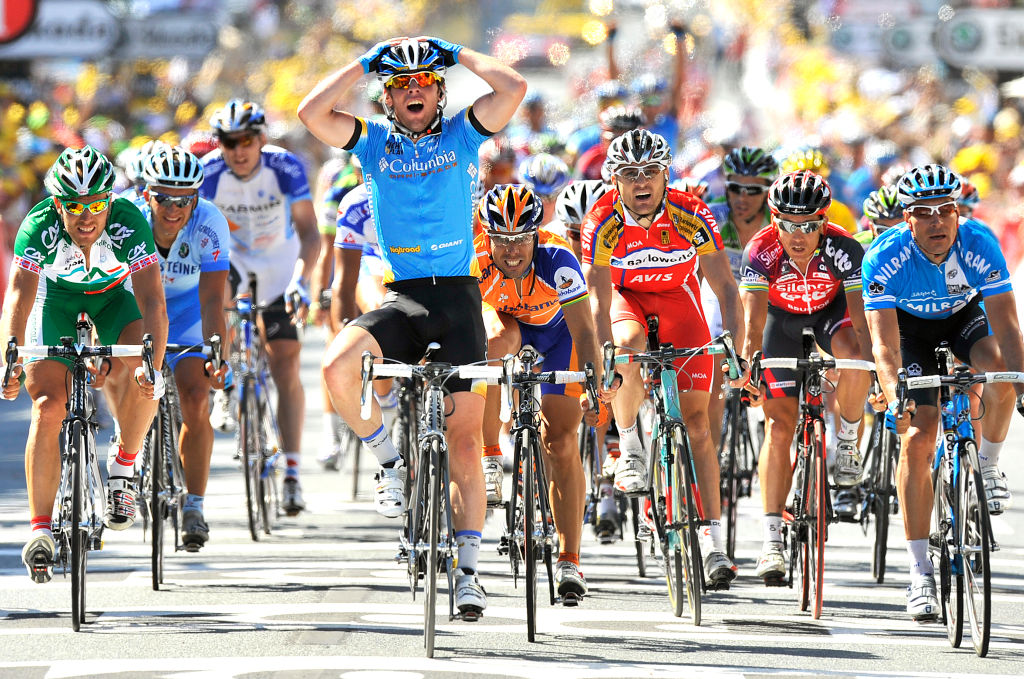
- Top victories: Tour de France, 35 stages; Giro d’Italia, 17 stages; Vuelta a España, 3 stages; World Championships; Gent-Wevelgem; Milan-San Remo
- Career win tally: 165
“I have achieved everything that I can on the bike” was how Mark Cavendish described his career on the day he hung up his wheels, and given the scale, duration and diversity of his achievements, it’d be hard to disagree.
It’s worth remembering that even before he powered to victory number 35 in the 2024 Tour de France, Cavendish already held the record – together with Eddy Merckx – for stage wins in cycling’s biggest bike race. Yet to focus just on the Tour with Cavendish is to ignore the staggering range of his victories, from multiple stages two years running in the long-departed Tour of Missouri to the venerable giant of the sport that is and remains the Giro d’Italia, from the streets of Copenhagen in the 2011 World Championships to the cobbles and grit Driedaagse Brugge–De Panne, from Milan-San Remo to the Tour of Oman.
And so on and so on, all the way to 165 wins, the second-highest road race total in the history of the sport.
That total comes without mentioning his achievements on the track, scene of two World Championships Madison titles, and in terms of technique, the ideal academy for his sprinting strategies and skills, too.
When it comes to establishing Cavendish’s status in modern-day cycling, his winning in all three Grand Tours is already the privilege of only a select few of the world’s best racers. But to lead Giro, Tour and Vuelta in his career, as Cavendish also did, whittles down the numbers of that elite collective even further. Indeed, although his pro. career lasted – remarkably for a sprinter – for nearly 20 years, there was a period from around 2009 to 2012, when it seemed that Cavendish was the fastman’s equivalent of Tadej Pogačar.
He was automatically the standout favourite for any bunch sprint and with an ability to snatch victories on courses as demanding as Gent-Wevelgem and Kuurne-Brussels-Kuurne and the 2022 British National Championships through the Scottish Lowlands, and even some short time trials. Only the high mountains and the GC rankings seemed beyond him.
Arguably the most remarkable quality of Cavendish as a racer was that, in terms of physiognomy, he by no means had the ideal build for sprinting. And yet he succeeded in his chosen speciality with such brilliance. Time and again, determination and tenacity, coupled with a prodigious natural turn of speed and a much-feared double acceleration, allowed him to operate in a class of his own.
But perhaps rather than the Tour de France stage record and all his other dazzling successes, perhaps his greatest achievement of all came off the bike. Late in his career, the Manxman’s courageous determination to fight mental illness and clinical depression is where Cavendish’s capacity to inspire others, in and outside the sport, ultimately matters most of all.
A second-to-none breakaway specialist with wins in all three Grand Tours
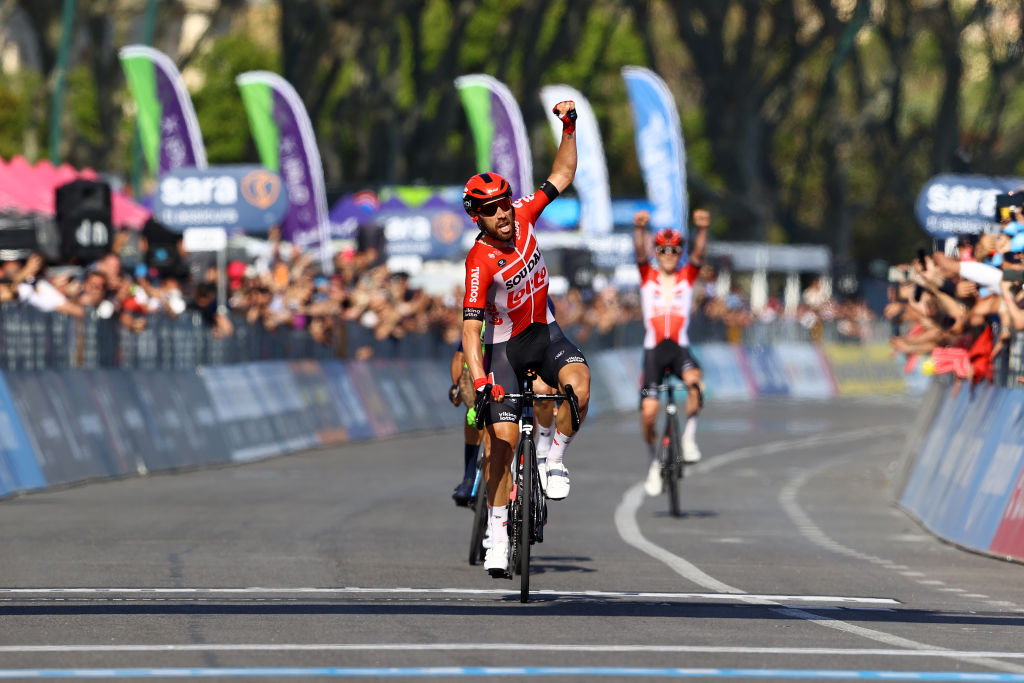
- Top victories: Tour de France, 2 stages; Giro d’Italia, 2 stages; Vuelta a España, stage; Paris-Nice, 2 stage wins; Volta a Catalunya, 5 stage wins; Tour de Suisse, stage win; Tour de Romandie, stage; Critérium du Dauphiné stage.
- Career win tally: 17
“Thomas is Thomas,” longstanding Lotto-Dstny sports director Mario Aerts used to like to say when asked about what plans they had for Thomas De Gendt in a particular race. And in the very best sense of the expression, De Gendt was a rider who simply refused to play by the normal rules – and whose resulting breakaway successes made him both an inspiration to other non-conformists and a cult hero in the sport.
De Gendt could easily have taken things in a very different direction, had the Belgian opted to follow up his third place overall in the 2012 Giro d’Italia and triumph on the Stelvio with further cracks at GC. Instead, he opted to go for what was arguably an even harder path, looking for success in the teeth of the iron control of the GC teams in major stage races and where – unless you are in the league of Tadej Pogačar or Remco Evenepoel – regularly triumphing in long-distance moves is increasingly hard to do.
Yet De Gendt triumphed in his chosen field a great deal. In fact, it happened so often that his breakaways became viewed as the ultimate triumph of a cycling underdog. Victories included a double success in the Tour de France – including one on the Mont Ventoux – two in the Giro d’Italia and one in the Vuelta a España, but also in such high calibre stage races as the Tour de Suisse, Tour de Romandie, Paris-Nice and the Criterium du Dauphiné.
Remarkably all bar two of his 17 victories – a stage in the 2009 Tour de Wallonie, his first-ever pro win, and another in the long-defunct Circuit de Lorraine in 2011 – came in WorldTour events.
De Gendt’s talisman race, though, was undoubtedly the Volta a Catalunya, where he took five stage wins, two of them in the notoriously difficult Montjuic Circuit on the final day, and another, memorably, by nearly three minutes on the opening stage of the 2017 race.
So much success in a discipline with such a high fail rate put De Gendt fair and square on the radar of any GC team wanting to control the early moves. But when he was not doing his fair share and more of the teamwork, all too often, De Gendt often proved more than a match for his pursuers.
And victories like his last one, in an all-out three-up sprint in Naples seafront in the Giro d’Italia as the peloton closed remorselessly in behind, will likely be used as masterclasses in the art of breaking away for years to come.
Longstanding top team worker for all-conquering SD Worx-Protime team
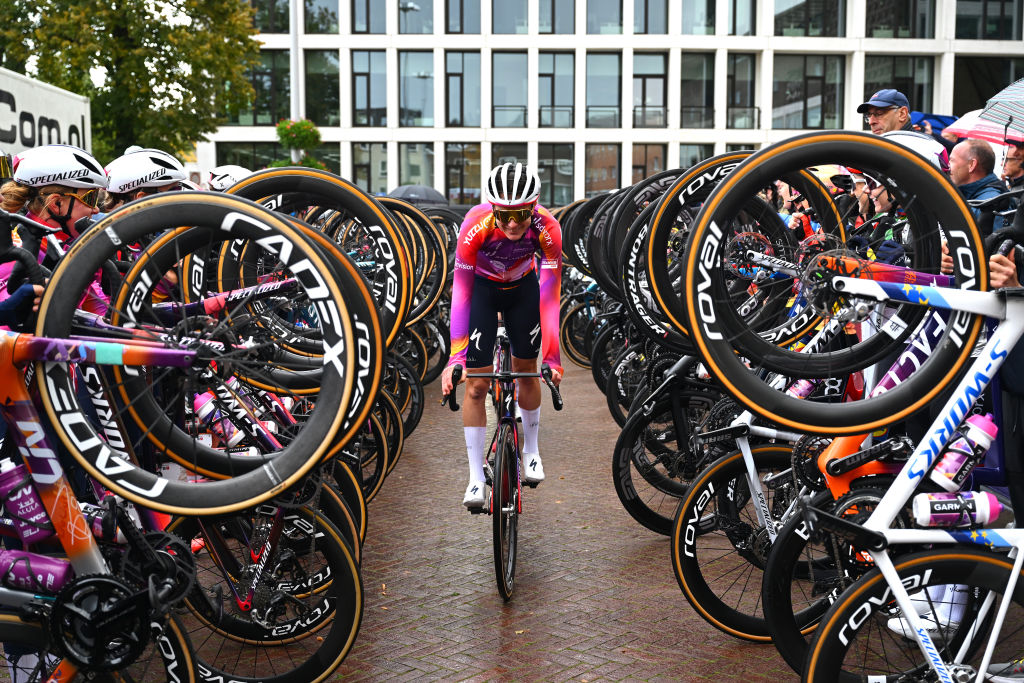
- Top victories: Boels Ladies Tour; National Championships time trial – 17; National Championships road race – 10, Cyclo-cross National Championships – 12
- Career victory tally: 45
When Christine Majerus announced mid-season that she was retiring at the end of 2024, you could almost hear a groan of collective disappointment that the news produced in her team, SD Worx-ProTime. Not because she was a born winner – although a staggering 17 Luxembourg national time trial titles might suggest the opposite – but because she was so instrumental behind the scenes in helping the sport’s number one squad succeed so often.
“Nobody knows how important Christine is in the development of this team. If you can stay for 10 years within a team and do such a great job, as Christine does, everyone knows how much of a good rider and good person that she is,” said the team’s manager Danny Stam at the time.
“We always speak about the winners, but it’s never possible without riders like Christine. She is one of the most important keys to getting your victories done.”
During her career, Majerus became famous for being one of the top domestiques of all time, be it in the Classics or the Grand Tours. In 2020, when she was named one of the top 10 team workers of the season by Cyclingnews, colleague Dani Ostanek wrote that “the undisputed road captain was in the team for four of the their seven trade team wins during the season, including all four of the Women’s WorldTour triumphs.” They also cited her work for the winning team that year at Le Samyn (where she took second herself), at La Flèche Wallonne, Gent-Wevelgem and the Tour de Flanders.
“There was no one standout performance for Majerus in 2020; instead, she did as she always does to provide a calm, experienced head out on the road, key to their continued success,” Ostanek concluded. In fact that statement could have truly been about any year – although Majerus herself also notched up 47 triumphs, including 29 national road and 11 cyclocross titles.
“When I started [at Boels Dolmans, the former sponsor for SD Worx squad in 2014 – Ed.], it was about trying to become the best team in the world and that was quickly done,” Majerus, now 37, said when she announced her retirement.
“The goal changed to staying number one, which was hard work, also because all the other teams stepped up, and it never got easier. We always made it happen. That’s a great achievement.”
Widely considered the greatest MTB Downhiller of all time
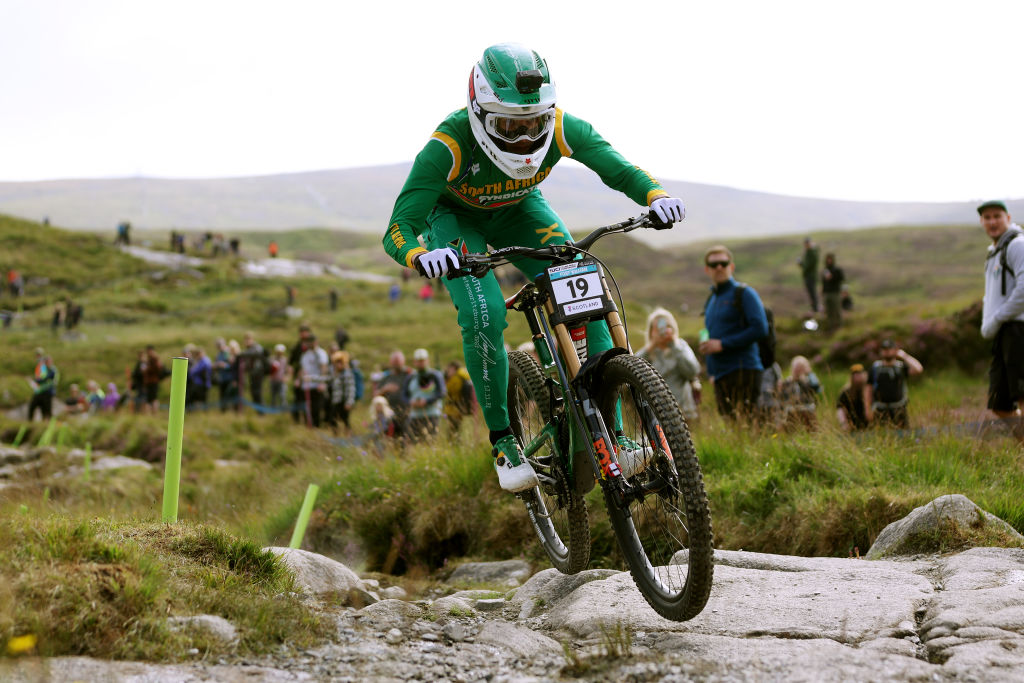
- Top victories (MTB): Mountain Bike World DH series – 3; MTB DH World Cups – 22; MTB World Championships (DH) – 4.
Just as Mark Cavendish’s retirement has marked the end of an era in road racing, the absence of South African downhill MTB racing star Greg Minnaar from next year’s World Cup competitions will end another long and very rich chapter in the history of the sport.
In a career spanning well over two decades, Minnaar, 43 has been an integral part of the downhill scene, claiming four World Championships titles – the first in 2003, the last in 2021 – three World Cup titles and a record-breaking 23 World Cup rounds. Not for nothing, it would seem, is his nickname the GOAT.
According to WhistlerMountainBike, Minnaar was “known for his smooth, understated racing style.” That style scored him more World Cup points than anyone – 19,434 – and a podium strike rate of 51.8% (86 podiums from 166 starts).
Minnaar’s involvement in top-flight downhill racing began in 1997 at the precocious age of 16, when he gained special permission to take part in an elite World Cup race in Stellenbosch, South Africa.
In 1998 Minnaar was still sponsored by local bike shops in South Africa but he nonetheless managed to claim the National DH title. After moving into the international ranks in 2000 when he rode as a junior for British squad Animal Orange, in 2001 he moved on to Global Racing, where he won the World Cup series for the first time, as well as claiming his first World Cup in Kaprun, Austria.
Minnaar was rightly viewed as one of the leading names in Downhill racing by this stage, but 2008 was arguably the pinnacle of his World Cup success, podiuming in every one of the eight rounds and winning three. It all but went without saying that he took the overall title. However, perhaps the high point of his career came in 2009, with a World Championships victory on home soil in his home town of Pietermaritzburg, South Africa.
Then in 2015, Minnaar finally made the World Cup downhill victory record his own, claiming his 18th win of the series at Lenzerheide. By happy coincidence, the Swiss resort was also where he took his final Downhill World Cup title, although the final major success came in 2021 when he won the Mountain Bike World Championships Downhill race in Val di Sole, Italy.
After taking on a semi-managerial role at his final squad, Norco, Minnaar finally hung up his wheels, at World Cup level at least, this October in the final round of the season at Mont-Sainte-Anne, Canada. However, he has not ruled out continuing in the sport in less high-profile DH events in 2025. Here’s hoping.
Olympic track gold medallist and widely rated as world’s greatest lead-out man
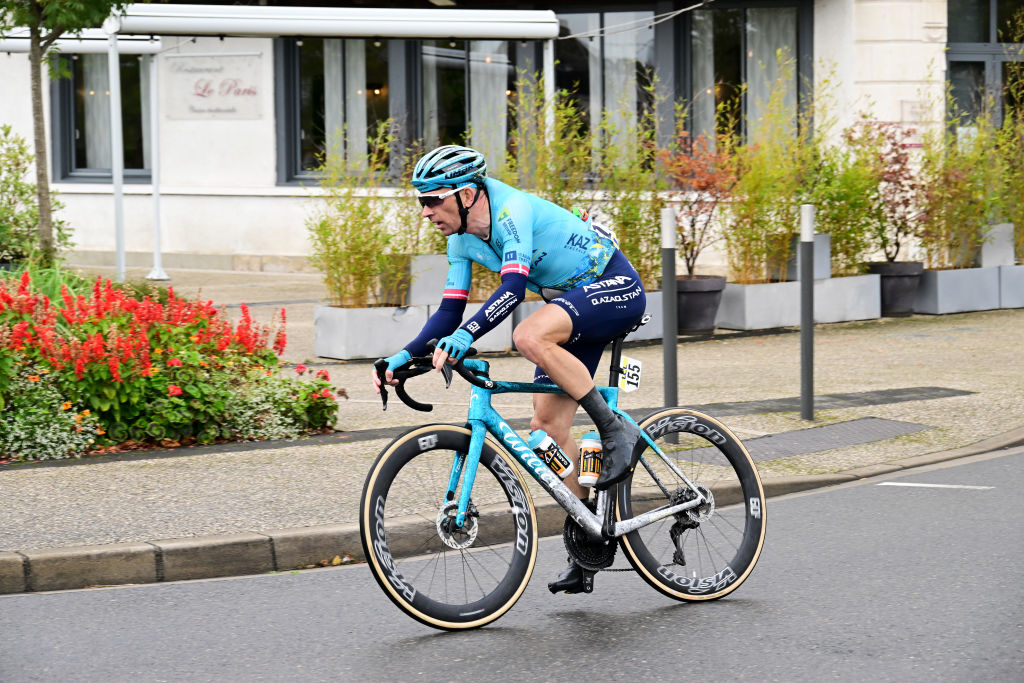
- Top victories (road and track): Olympic Madison; World Track Championships team pursuit – 1 and Madison – 3; Vuelta a España, stage; National Championships Road Race – 3; National Track Championships – 13.
- Road career win tally: 5
When news broke that Michael Mørkøv is set to become Denmark’s new national team coach in 2025, it was hardly surprising. After all, as a recently retired rider who has played such a critical role in team building, to the point where he was often described by Mark Cavendish and others as the greatest lead-out man in the world, Mørkøv must have felt like a natural fit for the job.
Mørkøv’s work with Cavendish, guiding him to within sight of one stage victory after another at QuickStep and again at Astana is probably his best-known facet as a racer. But it’s far from his only success story. A Vuelta a España stage win in 2013 came after the bunch caught a breakaway within sight of the line, and there were three Danish road titles as well.
Yet it was on the track – Mørkøv’s first love as a cyclist, watching the Copenhagen Six Days in the 1980s and 1990s alongside his father – that he shone the brightest in his own right as a racer, taking the 2020 Madison Olympic Gold with Lasse Norman Hansen. There were also three World Championships titles in the same speciality and one in the Team Pursuit.
On the road, Mørkøv’s lead-out work and his insights and expertise into one of cycling’s trickiest specialities bordered on the legendary. As he has recounted, he only became a lead-out man full-time relatively late in his career, with Alexander Kristoff at Katusha in 2016 and 2017.
After that riders of the calibre of Elia Viviani, Sam Bennett, Fabio Jakobsen and, of course, Cavendish in QuickStep from 2018-2022 and again in his ‘Project 35’ Tour de France stage wins with Astana in 2024, all benefited from his experience, skill and knowledge.
“I really enjoy working with all of them,” Mørkøv told Cyclingnews in an interview in 2022. “I’m often asked what are the differences between them and they certainly have different personalities. But at the end of the day, they all have to be delivered 250 metres before the line in the best possible position.” And to do that, whenever he was leading them out, Mørkøv was almost always exactly where he and his sprinter needed him to be.
Charismatic Colombian allrounder whose fame stretched well beyond the sport
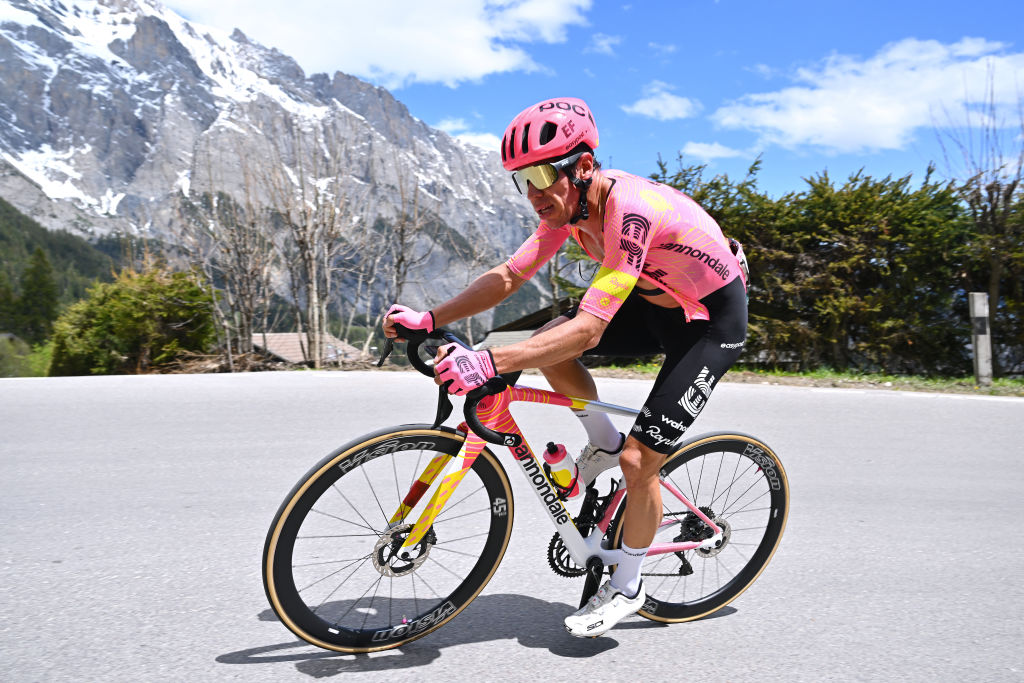
- Top victories: Tour de France, 1 stage; Giro d’Italia, 2 stages; Vuelta a España, stage; GP de Québec; Tour de Suisse, 2 stages; Volta a Catalunya, stage; Milan-Torino; Gran Piemonte.
- Career victory tally:14
To get a full impression of how compelling a racer and public figure Rigoberto Urán could be, three different off-the-bike incidents immediately come to mind. The first was an interview I did with him in the mid-2000s for Cycle Sport magazine, where in calm but extremely powerful language, he discussed the accidental killing of his father, a lottery ticket salesman, in a paramilitary shoot-out and how as a young child he then had to take over as family breadwinner, doing everything from washing cars to working in bars.
A second incident that springs to mind was in a Tour de France finish town, where a huge crowd of Colombian fans gathered outside the EF team bus to chant his name and cheer him on. This was despite a notable dearth of results in that year’s race and indeed any sign whatsoever of Urán himself.
The third, much more lighthearted moment, came during a pre-race press conference this year at O Gran Camiño in Galicia, where one key ambition, he told journalists, was to find a nice place for dinner when the race was over. He duly asked the race director, also present on the stage, if he could recommend somewhere nice.
This is a roundabout way of saying that thanks to Urán’s resourcefulness and resilience, his good-natured sense of humour and his refusal to take himself (or his sport) too seriously, Urán struck numerous chords with both the public and the media. It goes without saying, too, that Urán could walk the walk as well as talk the talk, with stage wins in all three Grand Tours, podium finishes in the Giro d’Italia and Tour de France, and an Olympic silver medal in the 2012 road race in London to boot.
But his importance as a racer didn’t end there. After some difficult years for Colombian cycling to make breakthroughs in the sport, Urán’s pioneer role in the later noughties, taking younger riders under his wing and helping them get started in Europe can’t be forgotten, either. Nor should the top businessman facet of Urán be ignored either. Over the years, he has built up his own line of clothing, cafeteria chain and bike brands back in Colombia, which according to Forbes magazine were globally worth over 42 million dollars in 2022.
But rather than financial success or his extremely classy racing style, what arguably strikes home the most about Urán was his larger-than-life personality and charisma – and where that has taken him. Who else but Urán could manage to have a Grammy-nominated (and by all accounts very popular) soap opera made about his life, for example? Or opt (as he says he now will do) to go for a career in football – playing, not managing?
If Uran’s career and background are fascinating and inspiring in equal measures, what he will now do when he’s retired is hardly going to be lacking in interest, either.
More notable retirements
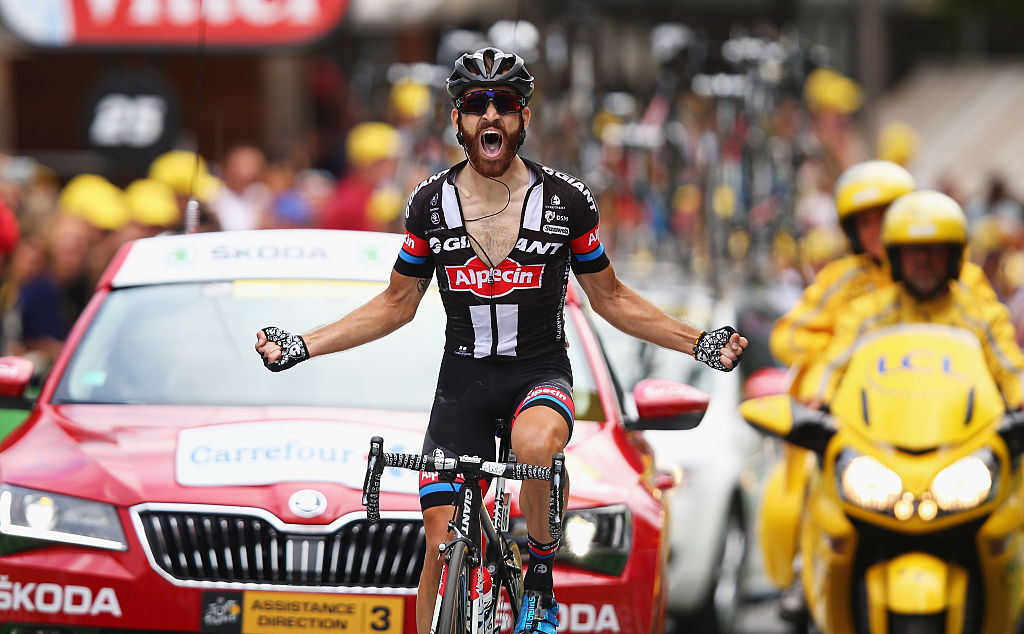
TheShockNews of riders taking a final bow in 2024 runs well beyond those outlined above and while it would take too long to mention them all there are a few more that immediately stand out.
A retirement special can’t go past without mentioning Anna Shackley, one of Britain’s most talented young cyclists, who had to retire aged 22 because of heart issues. A former U23 road champion, and bronze medallist in the equivalent category on home soil Glasgow’s World Championships in 2023, Shackley ultimately had to take what she called “a devastating decision,” and stop racing.
Also bowing out at the end of this season are Human Powered Health duo, Audrey Cordon-Ragot, the hugely talented allrounder with seven French TT National titles and two on the road to her name, and Alice Wood. Wood, 29, is a former double British National Champion on the road and against the clock in 2019, and one of the few riders able to say she once beat Marianne Vos in a two-up duel, in her case in the opening stage of the 2017 BeNe Ladies Tour.
In men’s racing, Robert Gesink‘s longstanding services as a high mountains team worker with Visma-Lease a Bike rounded out an entire career in the same Dutch squad, and also included a high mountains stage win on the Aubisque in the Vuelta a España.
Similarly, both Briton Luke Rowe (Ineos Grenadiers) shone in his own right in the Classics in his own right, and Gorka Izagirre (Cofidis) was a memorable winner of an ultra-hard transition stage in the Giro d’Italia through the Gargano National Park in 2017. But like Gesink, both will likely be best remembered for their similarly strong, and consistent, team worker roles for many years.
Others also playing their part in with too often underrated behind-the-scenes teamwork and ending their careers include Italian climber Dario Cataldo (Lidl-Trek) and Texan TT specialist Lawson Craddock (Jayco-AIUIa). Lithuanian Ignatas Konovalovas (Groupama-FDJ), who once beat Bradley Wiggins in a TT stage of the Giro d’Italia, 2017 Tour de France Alpine stage winner Lilian Calmejane (Intermarché-Wanty) and one of Italy’s top leadout specialists, Jacopo Guarnieri (Lotto-Dstny) are also saying goodbye to professional racing this year.
New Zealander Patrick Bevin (DSM-Firmenich-Post NL) and Domenico Pozzovivo (VG Group-Bardiani CSF-Faizanè) were famous both for their commitment and consistency as well as their articulate insights into the inner workings of the peloton. Tour Down Under winner Bevin bounced back twice after cardiac arrhythmia in 2020 and then resurfaced in 2024 and Pozzovivo etched out an even longer career despite multiple crashes and major injuries. Both, though, have now opted to call times on their careers – Bevin at 33, Pozzovivo at 41.
Part of top WorldTour teams like BMC in his prime, former US national champion Joey Rosskopf (Q36.5) is another notable retiree, so too is breakaway specialist and environmental campaigner Luis Angel Maté (Euskaltel-Euskadi). The same goes for Simon Geschke (Cofidis). The number of bearded winners of mountain stages of the Tour de France there have been will likely remain a pub quiz question for many years, but Geschke is amongst them.


